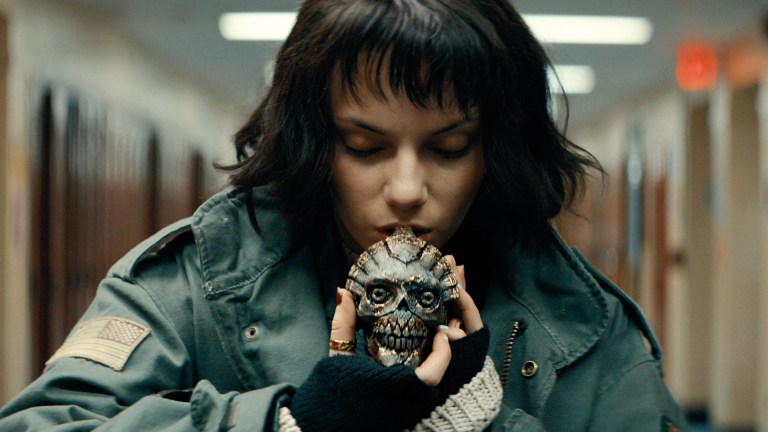Todd Phillips’ Joker movies don’t just want us to change how we think about Batman’s cackling ‘clown prince of crime’, they want us to think about the world that created him. The films suggest that if he was conditioned by systemic, behind-closed-doors abuses the same could happen to any of us.
The first Joker in 2019 tried to highlight the harmful ways society treats its unwell outsiders; the sequel, Folie à Deux, gives an institutionalised Arthur Fleck (Joaquin Phoenix) what he’s always craved – love, courtesy of Harley “Lee” Quinn (Lady Gaga) – as a means to unpack how Arthur sees himself. But whether it’s through his narcissistic delusions, obsessive personalities or pretending he has dissociative identity disorder as a court defence, Folie à Deux is just another reminder that Phillips and Phoenix do not know how to treat serious mental conditions within a heightened ‘genre’ film.
Get the latest news and insight into how the Big Issue magazine is made by signing up for the Inside Big Issue newsletter
Arkham Asylum is a poorly funded prison with inhumane, corrupt staff. Arthur has no agency over how he’s portrayed by his defence counsel. His crimes were very lucid attempts to balance the disorder of his life. But despite all this, when the film tries to subvert the insidious ways people with mental health conditions have been portrayed in media, the leaden way Phillips and co-writer Scott Silver represent Arthur’s mental illness goes against how real health professionals want to see the conditions represented on screen.
When the first Joker was released five years ago, many experts took to the internet to break down Arthur’s symptoms and the repercussions of furthering stereotypes. While some, like psychiatrist Kamran Ahmed, celebrate the film’s anger towards the institutional violence that radicalises Arthur’s psyche, the consensus points towards one huge oversight – that very few acts of extreme violence are motivated by mental illness.
“The notion that mental deterioration necessarily leads to violence against others – implied by the juxtaposition of Phoenix’s character Arthur stopping his medication with his increasingly frequent acts of violence – is not only misinformed but further amplifies stigma and fear,” Annabel Driscoll and Mina Husain wrote while they were junior doctors on inpatient psychiatric wards. It’s difficult to take Joker and Folie à Deux’s sincere call for societal reform seriously when Arthur’s back story and behaviour are so cartoonishly embellished. People with serious mental health conditions deserve to be treated well because it’s the humane, responsible thing to do, not because it will stop them lashing out with horrific violence.









